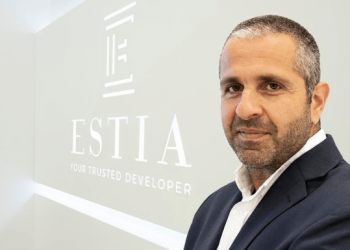The Polish Association of Developers (PAD) has been the umbrella organization for real estate developers in Poland since 2002 and presently counts over 200 member companies. It offers professional and legal support to its members and promotes industry good practices.
CEEREM: You have been at the helm of the Polish Association of Real Estate Developers for over nine years. Could you highlight two or three main challenges the industry is presently facing, and ways in which you are trying to address them?
Our number one challenge is going green. Balance must be found so that neither the environment nor the end user suffers, eventually. Poland doesn’t have a legal environmental standard for real estate developers to abide by. However, we don’t wait for regulators to tell us what to do. Instead, we created an internal culture of sustainability among our members by training them on how to contribute to reforestation. Our second main challenge lies in achieving fairness in taxation by convincing the authorities to charge end users on a number of bought square meters basis.
CEEREM: Poland is a mature market that is starting much attention but it only has so many square meters…
That would be our third challenge: the lack of investment plots. Short supply in this area impacts developers’ future planning and profitability, considering that we are getting less in terms of spatial development plans and zoning decisions. In the last five years, the average price for an investment industrial plot went up by 80%. This affects industrial more than other real estate sectors, as warehousing facilities created a steady demand during the pandemic.
CEEREM: What are PAD’s top priorities for the next two to three years?
I want to establish our association as a knowledge hub and a platform for coming up with environmentally friendly development solutions. Last but not least, we will invite more local and governmental representatives to our thematic groups, hoping to achieve a critical mass able to spread awareness and join efforts to solve the problems that developers are facing today in Poland.
Every year we put our mark on some 25-30 legislative projects that affect real estate. I am proud to admit that our opinions are considered in almost 80% of the cases, although to a variable extent. It’s not that bad, it shows we must carry on.
















